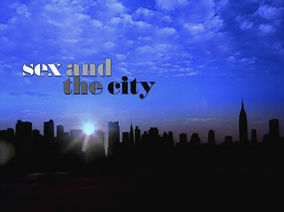Look, okay, this is clearly on my mind and I need to talk to you from a couch for about a 50-minute hour. I’d say I have stopped strangers on the street of discuss this, but I can’t remember the last time I spoke to anyone on any street for any reason ever.
You’re thinking about the 50 minutes. I think you just looked at your watch. You’ve got Zoom meetings to go to, I know. I’ll be quick. Ish.
This most recently came up in a Zoom natter last night, actually, but it’s been rolling around my head for a couple of weeks. It seems to pop in there from time to time and I never finish the thought, so let’s work this through and find a definite conclusion to a crucial issue.
Reviews.
What prompted this thought this time was that someone was saying they’d been asked by an author to read a book for review. They’d not enjoyed it and they told the author so in what, as far as one can tell from a recounted conversation, seemed to be fair and constructive. Negative, but constructive. Possibly harsh, certainly fair. This author, though, has now asked the person to not post the review online as originally requested.
So the question was whether this was reasonable and, as is the way with all online conversations, the discussion moved away from answering and instead onto some familiar territory. It isn’t nice to post any bad review, said many people. No one this time said “but the author worked so hard,” like they have in previous versions of this chat and, indeed, as they do every week on Strictly. But that was the gist of the chat. Nobody wants to hurt an author’s feelings and posting bad reviews certainly does that.
But reviews are not for authors.
The sole and exclusive purpose of a review is to help the reader, the viewer, the listener, the audience. It needs to be an interesting read, but the objective is not and cannot ever be anything other than helping someone decide whether it’s worth their time reading, watching, listening the piece that’s being reviewed.
When reviews were only done by professional critics, and when I was one, I thought the reason there were so many poorly-done pieces was centred on how reviews have to have an opinion in them. They must. You’ve got to give your honest opinion of something and then apply your experience, your skill, your talent, in conveying that opinion clearly.
If a review contains no opinion, it is a billing, a listing. If it contains the opinion that you think your audience wants to read, it’s worthless and I’m ashamed of you. (There’s a story that Empire magazine gave Star Wars: The Phantom Menace a five-star review when it came out, only to quietly drop it to three when the hype was over. Apparently it’s not true: it was a four-star review which they then dropped to three. So that’s completely different.)
(Which reminds me. When I was there, Radio Times had an internal film database from which all the listings and the books were generated. I used to claim that the database’s star ratings had an automatic +1 generator because, it seemed to me, everything was slightly over-rated.)
Star ratings. Don’t get me started. But in written reviews, you have to have an opinion or it isn’t a review.
The problem is that the opinion absolutely must be central to the review, your opinion is critical – in every sense. Yet at exactly, precisely the same time, you personally do not matter in the slightest.
Plenty of people read some or many of the something like 16,000 reviews I wrote for BBC Ceefax, but not a single one of them ever read a single word because it was me and my review. They read it because they wanted to know, say, about the big new drama on BBC1. I was irrelevant and so I should be.
My value to them was that I’d seen it. I would hope that the fact that I’d seen a lot of drama, that I am a drama writer, all feeds in to my being useful and interesting, but really it probably doesn’t. There’s a new show, a new book, and here’s a fella who has seen or heard or read it. That is all.
Even then, even if I’ve done my job and conveyed to you what my one person’s opinion on the subject is, I’m not reviewing in isolation. My mother did read my BBC Ceefax reviews and wished I’d say that same thing as whoever did the ones on ITV Teletext, but all of us see or read many reviews.
I think the first one you come across colours all of the rest, but still you’re likely to at least get the gist of many. And you use them all to decide whether to watch or read, or whatever it is. There is so much out there, so many books, so many shows, you can’t read and watch them all so a helpful hand is useful.
However, once a reviewer thinks that their opinion, specifically theirs because it’s theirs, actually matters, that therefore they matter, they’re lost to me. And it’s usually extremely easy to spot it, you can tell extremely swiftly. You see this across every field, too. For instance there’s a particular technology journalist who pants about how difficult his job is and who acts as if his review of, say, Apple’s iOS 14 was both harder to achieve and more important than iOS 14 or whatever it is.
He’s an amateur, to my mind, but then now we all are. I read reviews before I buy a book, though I prefer reading extracts. I write reviews occasionally even though it’s no longer part of any work I’m commissioned for. We all write reviews and the sheer number of us has magnified what I didn’t like before.
The core, the purpose of a review truly has not altered in the faintest way. Unfortunately, there’s now so often the reviewer’s mistaken belief in their own importance, plus a tendency to shout in all caps that their opinion IS FACT SO THERE.
And unfortunately we’ve also gained an entirely new form of totally pointless review.
You’ve read them. They’re the ones that just recount the story at length and end with nothing more than an Amazon affiliate link at the end. That’s not a review, that’s someone pretending to be a writer.
There are also ones who over-analyse everything because the internet has no word count and they aren’t being paid anyway. I’ve had one of these: a Doctor Who of mine earned a detailed explanation of all my references to a science fiction masterpiece I’ve never heard of. That’s also not a review, that’s someone pretending to be an academic. It was fun, though. That was a three-biscuit read.
I nearly forgot. There’s also the astonishing number of reviews where you can quickly see that the reviewer hasn’t actually read the book. I think I forgot that because I want to forget it. I am always impressed when someone interviewing me actually has read the book or whatever it is, because there’s a lot you can usefully ask and a lot we can usefully discuss without your having gone to that trouble. But not doing it, and pretending you have, that makes me feel ill.
Having now sounded like I think all reviews deserve two stars at most, there are good ones. Don’t let me forget the shockingly few reviews that are useful to authors. I mean, what a reviewer thinks of your work can be insightful. It doesn’t tend to be much use because you’ve long moved on to the next thing, but it can be interesting.
It just doesn’t have to be, not to the author. It doesn’t have to be useful to him or her. It solely and exclusively must be useful to the audience.
So as to this point of hurting an author’s feelings or not, especially when they’ve worked so hard, I offer that my considered opinion is tough shit.
I am an author. If you give me a bad review –– and it’s well-written, if it has a point, if you make a case –– then thank you. Yes, I could be hurt by it, but if you put someone off reading me who would dislike my work as much as you do, you’ve helped them and to me that means you’ve done your job.
One of the reasons that I’m no longer writing reviews for BBC Ceefax is that they shut the bugger down. One of the reasons I’m not writing them for BBC News Online or Radio Times is that they dumped me. But the biggest reason is that as much as I believe in the potential usefulness of a review in this world where we are besieged by new books and drama, I’ve never been able to solely review things.
I have to write something too. Whether or not it gets good reviews, whether or not it even comes out. We have to try, don’t you think?
You’re thinking that our hour is up. Nuts, I was enjoy the chat. See you next week, okay?

 Then for some other reason I never knew, Sky delayed airing the movie. So those disks lay there on a desk for a week or more until one night when I was coming home to Birmingham by coach and had nothing to watch. You’re thinking I took those disks and loved them, but you’d be wrong.
Then for some other reason I never knew, Sky delayed airing the movie. So those disks lay there on a desk for a week or more until one night when I was coming home to Birmingham by coach and had nothing to watch. You’re thinking I took those disks and loved them, but you’d be wrong. There’s a story that the first scene of Queer as Folk was coming across as a bit serious, that its tone was setting up the show to not feel the way it should. So an extra scene was written, shot and inserted at the start of the episode. It’s Craig Kelly as Vince talking to camera about one night out on Manchester’s gay scene and concludes with a description of a man who “has every episode of Juliet Bravo on tape”.
There’s a story that the first scene of Queer as Folk was coming across as a bit serious, that its tone was setting up the show to not feel the way it should. So an extra scene was written, shot and inserted at the start of the episode. It’s Craig Kelly as Vince talking to camera about one night out on Manchester’s gay scene and concludes with a description of a man who “has every episode of Juliet Bravo on tape”.